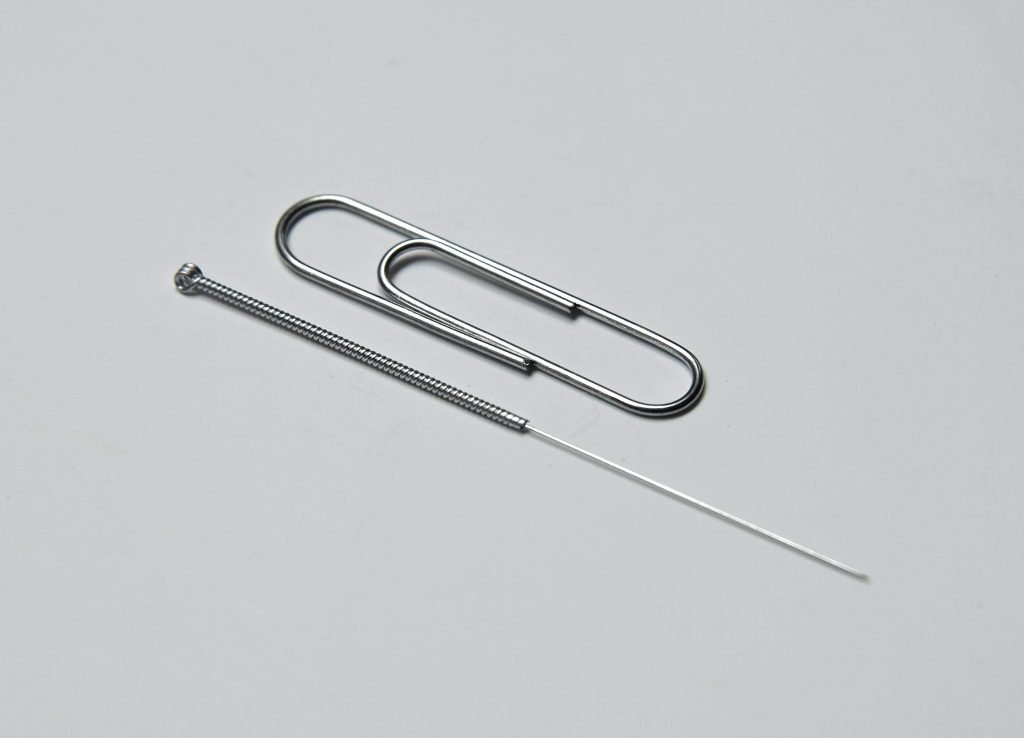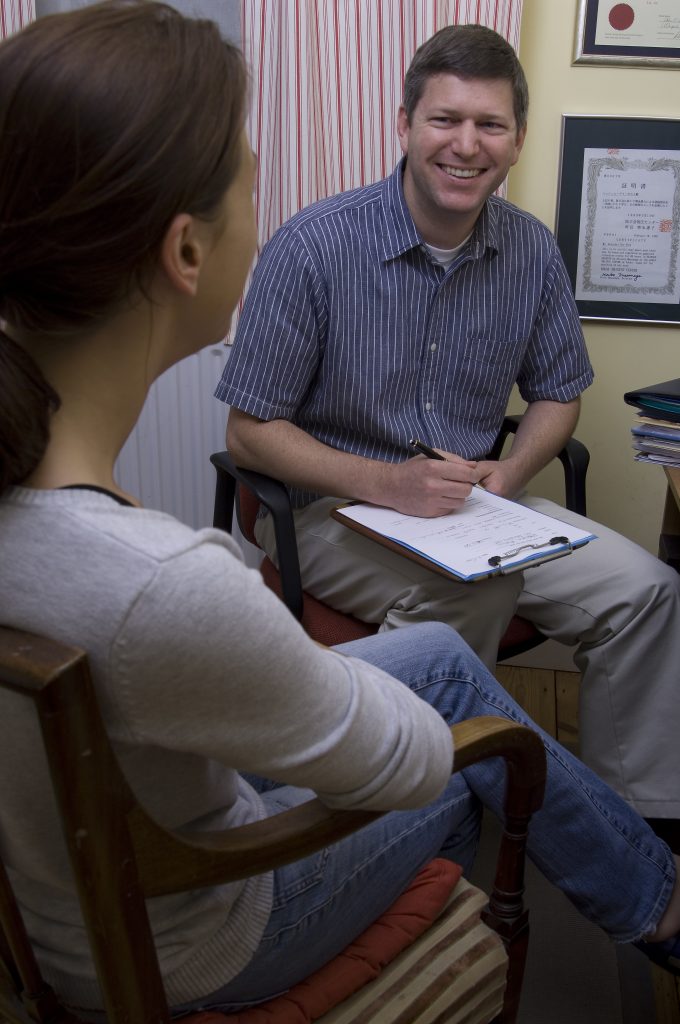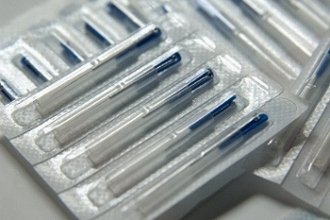Subscribe to the Newsletter
If you are interested in understanding how Traditional Chinese Medicine can improve your life sign up to my newsletter for the latest updates.

This is probably the FAQ (Frequently Asked Question) asked most often.
Yes! (But what did you expect us to say?)
Generally very safe, unless you see someone who knows nothing about it or uses needles that aren’t sterilised or designed for the job.
Go and see a qualified acupuncturist. For example, in Edinburgh do come and see me – Jonathan Clogstoun-Willmott.
Serious side-effects are very rare – less than one per 10,000 treatments. For more on acupuncture side-effects and research on safety, click here.
You should be aware that:
In addition, if there are particular risks that apply in your case, your practitioner will discuss these with you. To find out how we have such precise figures, read the research, here.
That depends. Most people agree that at most it feels like plucking out a hair from your scalp. That’s as the needle slides through your skin. Acupuncture needles are very slim, and they slide in very easily.
So, not much.
But many people say they feel nothing as the needle goes in.
And there a few people who have very sensitive skin and for them acupuncture may not be the best therapy. How many? Our guess: one in five hundred people.

However, that’s not quite the end of the story because once the needle reaches the necessary depth (often just a few millimetres), if the acupuncturist knows what she or he is doing, a sensation known as ‘deqi’ (“day-chee”) is often felt as the needle begins to do its job.
‘Deqi’ means ‘grabbing the qi’ and it’s the start of the treatment. It’s hard to describe: not pain, but more like a tightening or gripping.
Some people say it feels numb or heavy. Sometimes the sensation travels along the meridian or channel, or is diffused round the needle.
Normally this deqi sensation gradually dissipates within a few minutes.
Don’t be too worried about this deqi sensation! It’s not a big deal, and although getting deqi isn’t always necessary, it’s useful feedback for you and for your acupuncturist.
Deqi is not used in all forms of acupuncture. Japanese acupuncture, for example, seldom needs to get it, but acupuncturists using this method often know if their needling has been successful because of other forms of feedback, such as the disappearance of sensitivity or pain somewhere elsewhere on the body.

Apart from the first session, treatments seldom take more than 45 minutes, but we usually allow one hour so that you don’t feel hurried.
However, the first consultation is important. Don’t rush it. That’s where your acupuncturist finds out about you and the reason for your visit.
If he can diagnose your condition clearly at that first meeting, your acupuncturist will have a much better idea of what to do.
Consequently any improvement should come sooner.
No, but we encourage you to tell your doctor.
Sometimes what we do may lead to a situation where you could or should reduce your medication, and we always suggest you discuss this with your doctor before making changes.
If you want us to write to your doctor about your treatment we are glad to do so.
That’s an excellent question and if you read what our patients say or those of any other qualified acupuncturist, we think you’ll hear some remarkable stories.
But because in the UK there is now a code of advertising which requires robust scientific evidence before any health claims can be made in print or online, and getting this costs staggeringly huge sums of money, we can’t tell you about this.
You can read all about the British Advertising Standards Authority here.
Among the few conditions we are allowed to mention at present are the following:
Actually, by the time you read this, some of the above may be out of date because a huge amount of research worldwide is being carried out under strict reporting conditions. It is getting much harder to deny that acupuncture is effective for many conditions.

Apart from the usual medical details (see Consultation), it is important that you let your practitioner know:
In 1995 there was careful discussion between acupuncturists and doctors in the British Blood Transfusion services. They agreed that there is no reason for acupuncture in itself to prevent people from donating blood. That’s as long as a competent and professionally registered practitioner does the acupuncture.
Having said that, some localised Blood Transfusion Services may not realise how safe acupuncture is.
However, the conditions for which acupuncture is being given may be a reason for deferral.
If your practitioner is a member of the British Acupuncture Council, your practitioner is fully insured, for example, against professional negligence.
If you are in doubt, ask to see your practitioner’s BAcC annual membership card. In countries outside the UK, ask to see the practitioner’s insurance certificate.

Edinburgh Natural Health Centre and West Edinburgh Acupuncture use only single-use, pre-sterilised needles.
Until a few years ago, acupuncturists cleaned used needles then auto-claved them. (An autoclave is a special kind of pressure cooker. In it, steam reaches a much higher temperature than normal boiling point for water, and is kept at that pressure for a period of time, calculated to destroy all known organisms that might infect you.)
However, the advent of greater understanding about prions, bits of protein that aren’t destroyed in autoclaves yet can lead to what became known as Mad Cow Disease, for example, mean that now all acupuncture needles are single use and pre-sterilised in the factory from where they arrive at your acupuncturist’s clinic in sealed wrappings.
Before each treatment you’ll hear or see your acupuncturist unwrapping the needles to be used from their sterilised wrapping.
After use, all needles are disposed of in a ‘sharps’ box.

Completely confidential. Your notes are normally kept for at least 7 years, under lock and key. If you are a child, your notes are kept until you are 25.
You can read about our privacy policy by clicking here.
The same person who wrote the site and would have got further on with it had he not been seeing patients and writing books, lecturing and doing other stuff, including answering questions from visitors to the site from all round the world.
Write it in the form below and we’ll answer it as soon as we can.
You never know, it might be elevated to the giddy status of becoming a Frequently Asked Question!

Stay in Touch!
No spam, only notifications about new articles and updates.

Book a Video consultation if you want to know more about your symptoms

Why You get Nervous Stomach Anxiety and How to Handle It. Acupuncture has great ways to help.
Subscribe to the Newsletter
If you are interested in understanding how Traditional Chinese Medicine can improve your life sign up to my newsletter for the latest updates.
Subscribe to the Newsletter
If you are interested in understanding how Traditional Chinese Medicine can improve your life sign up to my newsletter for the latest updates.
4 Responses
Thanks for explaining that the pain from acupuncture can be very minimal. I’m interested in learning more about acupuncture because I’m planning to allot a day for massages a couple of weeks from now. As such, it would be best to try out acupuncture for that.
Hi Alice, When away on holiday I always try to get at least one massage from someone good, and I’ve had some fantastic, memorable massages, in different styles (eg therapeutic, head, Indian, Shiatsu, Shen …).
I particularly remember one from an Australian who was in the UK for a while, working his way around.
However, I’ve also seen what acupuncture can do and for disease and many kinds of pain and other distress, I would always rate acupuncture higher. It can be remarkably powerful and fast-acting.
Thanks for the reminder that it’s important to ensure that the needles are sterilized when planning to get an acupuncture therapy. I’d like to try that out because I heard that it can help a lot with my blood circulation. I think that will help me be able to work out more efficiently in the future.
In the UK, the law changed some twenty years ago, requiring all acupuncture needles to be presterilised and packaged so that their sterilised state could be preserved, at least until the ‘use by’ date. Packs of needles are opened only when they are needed. Used needles are placed in special containers and removed by hygiene authorities.
Many people use acupuncture for their circulation, but also for other health benefits.